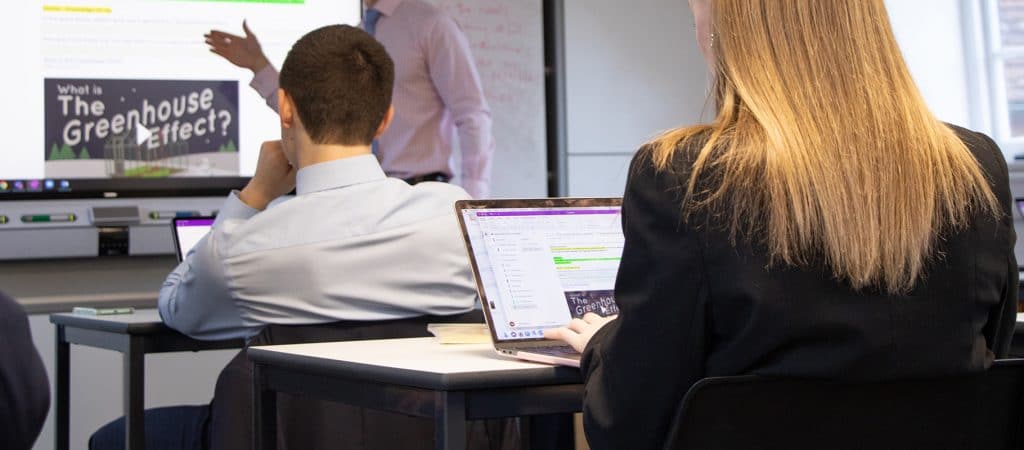THE WORLD NEEDS PROBLEM SOLVERS WHO CAN COLLABORATE ACROSS BOTH INTERNATIONAL BORDERS AND ACADEMIC DISCIPLINES.
It used to be said that the purpose of Britain’s public schools was to prepare people to run the Empire. Towards the end of the last century, the joke goes, this grand ambition was distilled down to simply ‘running the City’, as public and manufacturing sectors gave way to finance. But what next? What roles are we preparing our young people for now? In mere months we have transitioned to learn and work virtually and across vast distances which presents opportunities as well as threats. Artificial Intelligence, big tech and big data are rewriting the rules of business, disrupting traditional white-collar roles even more aggressively than the blue-collar tumult of the offshoring decades.
The powerful protests during the summer of 2020 have forced us all to consider ways in which we might de-colonise our curriculum, but the truth is that our pupils’ futures are nothing close to imperial and haven’t been for some time. This pandemic has illustrated, beautifully and tragically, that the world needs problem solvers who can collaborate across both international borders and academic disciplines. If our pupils can do that, they will thrive. If not, they will struggle to find their place in this brave new world.
ACADEMIC INQUIRY AND INTELLECTUAL CULTURE COMBINE TO ACQUIRE AND VALIDATE KNOWLEDGE.
How do we prevent the next pandemic? How can we reverse the loss of our planet’s biodiversity and prevent the impact of climate change? What will replace plastic? How do we deal with the impending mass unemployment of technological advance? How do we redesign our metrics of societal success? How do we improve our mental health? How do we prevent radicalisation? How do we sustain an ageing population? How can China best integrate with the Western economies? Is parliamentary democracy sustainable? How can social media be harnessed to maximise societal benefit? What will succeed capitalism? How do we avoid a post-truth world?
To win a place in these conversations, our pupils will need to be insatiable in their inquiry, with a powerful work ethic and an open mind. They may need to jump between time zones, languages, quantitative and qualitative sources. They will have to think scientifically, but also understand the subtle realities of human behaviour. They will need to communicate, challenge ideas and have their own ideas challenged. The global fight against the pandemic needs people like this and it is this group, undefined by background, location, colour or creed, that will emerge as the heroes of this darkest of hours.
On the face of it the IB Diploma looks like more subjects; six rather than the three typically followed by A Level candidates. However, there is far more to it than that. Embracing the IB Diploma means continuing a breadth of study across Maths, Literature, Languages, Science, Humanities and the Arts, whilst encouraging pupils to explore greater depth in their chosen Higher Level subjects. The curriculum is bound together by the excellent Theory of Knowledge course, an examination of how academic inquiry and intellectual culture combine to acquire and validate knowledge, something which an explosive blend of populism and social media has propelled to a position of critical importance.
In short, the IB Diploma is a tremendous opportunity for our young people to join a group of global game-changers and minimise their chance of being marginalised by this great paradigm shift. 2020 will be recorded as momentous not because of the pandemic but because of what the pandemic has revealed about our future; uncertain yes, but also exciting, with a chance for this generation of pupils to leave a legacy of global significance.





